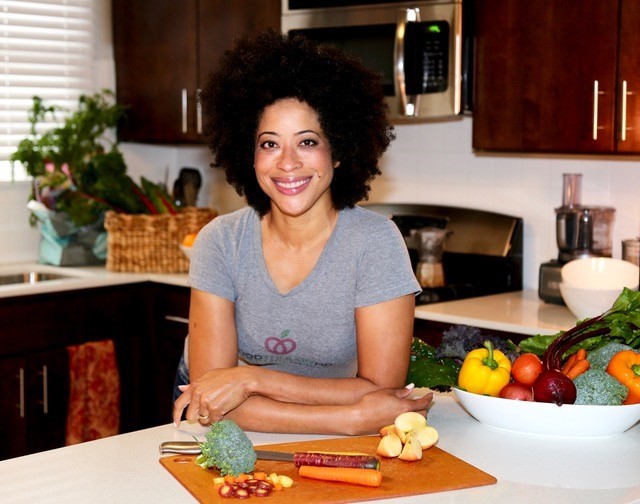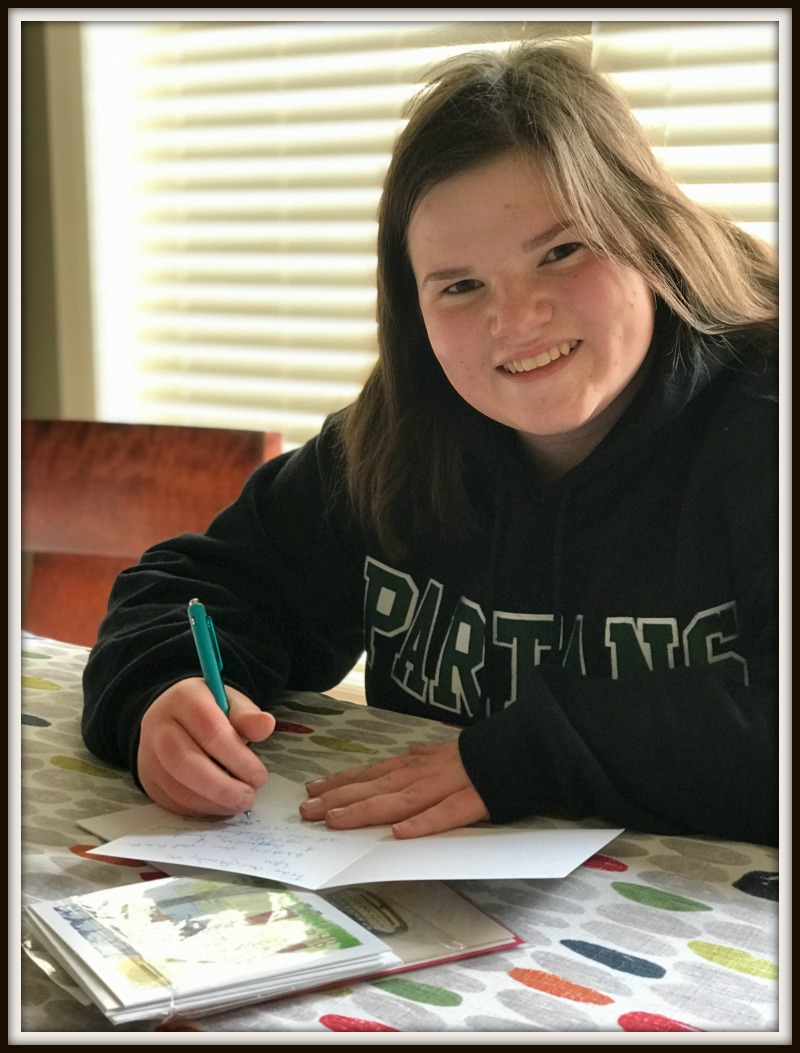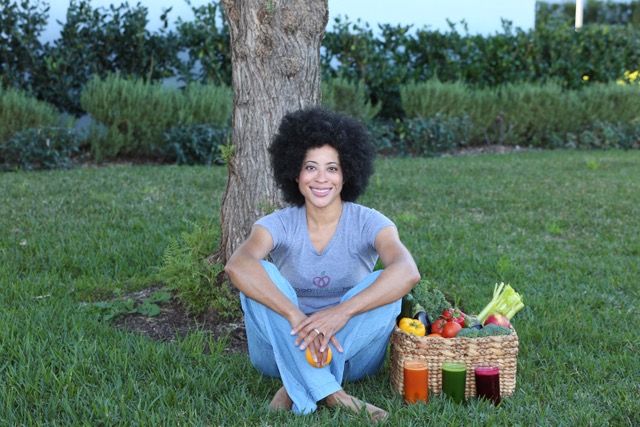
Is A Plant-Based Diet Best for Your Heart Health?
Did you know approximately 75 million adults, or 1 in 3, have high blood pressure? Of those, about 7 out of 10 are taking at least one prescription medication to treat the condition? What if you could tackle heart health head on with diet? What would that diet look like?
Dr. Stacy Mitchell Doyle is a Los Angeles-based physician, graduate of UCLA Medical School and the founder of FoodTherapyMD. This month, she is launching a consultation service called “Second Opinion.” The service is geared to help people develop a personalized, whole food plant based, prescription diet to combat chronic disorders like hypertension.
Recently Dr. Stacy answered a few questions for readers at Thrifty Mommas Tips.
Readers interested in diet and health will want to read this closely for information about making the commitment to a whole food plant-based diet.
Table of Contents
Question 1:
1. Can you tell me a bit about Food Therapy MD first of all?
- FoodTherapyMD is an online health resource for people looking for ways to achieve true health and longevity using evidence-based nutritional medicine. We promote using Whole Food, Plant-Based diets for disease reversal and prevention.
- FoodTherapyMD was the direct result of my frustration with traditional, pharmaceutical-based medicine. After 16 years in private practice, I realized my patients were on ever increasing doses of pharmaceuticals, but their health continued to deteriorate. Maybe at a slightly slower pace, but the result was always the same: death and disability. What I was doing was what I, and thousands of other doctors, was taught to do, and that is DISEASE MAINTENANCE. But I wasn’t interested in maintaining disease, I wanted to reverse it and prevent it from occurring in the first place. I knew there had to be a better option.
Question 2:
February is heart health month and I’ve been running a lot of heart health content here at Thrifty Mommas Tips. I’d love to hear a bit more about your take on impact of food on heart health?
- Food doesn’t just impact heart health. In fact, food is THE MOST important factor in determining the development and course of cardiovascular disease. Ignore all the conflicting stories on the internet about cholesterol and fat. That’s just noise. Focus instead on the underlying cause of heart disease, and that is CHRONIC INFLAMMATION.
- The inflammatory process and oxidative stress that goes on inside the heart and the sensitive lining of the vessels and arteries (called the “endothelium”) is what causes damage and destruction of the cardiovascular system. And everything you put in your mouth either CAUSES inflammation, or DECREASES inflammation. That is why a whole food, plant based diet has been repeatedly shown to REVERSE heart disease. The anti-inflammatory, antioxidant, and immune boosting properties of the phytonutrients in unrefined plant foods decreases toxic inflammation.
Question 3:
There are many diets out there right now. From Keto to paleo to vegan and Gluten Free. It’s hard for many people to sort through which diet is best. Why is a whole food plant based diet best for heart health?
- Whole Food Plant Based diets are best for heart health because it is the only diet that addresses the underlying cause of heart disease, which is chronic inflammation and decreased immune function. It is important to distinguish it from “vegan” or “vegetarian”. A Whole Food plant based diet focuses on consuming nutrient-rich, anti-inflammatory foods (such as vegetables, fruits, legumes, nuts, and seeds), and severely limits or eliminates inflammatory foods such as processed sugar and white flour, animal products (including poultry and dairy), soda, fast food, etc.
- This is the difference between Whole food plant based diets and vegan diets. As a vegan, you can still consume processed sugars, white pasta, soda, etc. I know of vegans who don’t eat vegetables! So the key feature of the whole food plant based diet is eating large amounts of nutrient-dense, anti-inflammatory, antioxidant foods and limiting those foods known to decrease immune function and increase oxidative stress.
Question 4:
Are most people doing what they need to do to build a healthy lifestyle right now?
- Most people are not doing nearly enough to build a healthy lifestyle. I can say that with certainty because of the rapidly growing rates of diabetes, cancer, and heart disease. These numbers aren’t going down, even though pharmaceutical prescriptions and the number of people on prescription drugs is skyrocketing. So obviously, there is a disconnect between what we think is healthy, and what actually is healthy.
- In order to build healthy diets and lifestyles, we should go back to basics. No complicated diets, pills, or supplements. Just making the majority of your diet unprocessed plant foods (I recommend at least 90% of your diet be unrefined or minimally refined plants, with focus on fresh fruits, veggies, legumes, etc) and limiting inflammatory, disease-promoting foods to 10% or less of your caloric intake. Zero percent is optimal, especially if you are trying to reverse an already established condition, but there is some leeway for those that feel they require small amounts of animal products to feel satisfied.
[tweetthis]Is a whole food plant based diet the best option? Read more and check out @DrStacyAnn for FoodTherapyMD details. [/tweetthis]
Question 5:
What other diseases or conditions respond to plant-based diet?
- There is not a disease I can think of that cannot be improved with a Whole Foods Plant Based diet, and many can actually be reversed/eliminated. That’s because nearly all chronic disease has, as its root, a chronic inflammatory process which is predominantly caused by the foods we eat, as well as the lack of anti-inflammatory phytonutrients.
- Heart disease, strokes, type 2 diabetes, arthritis, lung disease, high blood pressure, many cancers, even autoimmune disorders such as Lupus, and psychiatric disorders like anxiety and depression, all respond to plant-based diets.
- In my experience, I see improvement within 4-6 weeks ( even sooner in diabetes and hypertension). And the decreasing of prescription drugs starts soon after. Many are able to get off pills completely, but at a minimum, the amount and number of drugs needed is reduced.
Question 6:
I am one of the one in three who has high blood pressure and I tried many things to manage that and to get it down. I tried low sodium, low caffeine, unprocessed foods and I increased exercise dramatically and eventually I still needed medication. Are you indicating that a whole food plant-based diet can be a means of avoiding medication if you have high blood pressure or are you saying that it’s a preventative measure for everyone else? Can you clarify?
- A Whole Food Plant Based diet can ABSOLUTELY be a means of avoiding medication if you have high blood pressure. In fact, in my experience, high blood pressure is one of the easiest, most responsive conditions to treat with plant-based dietary measures. Blood pressure medication stops the SYMPTOM, but doesn’t do anything to address the root cause of the high blood pressure. That is why people have strokes and heart attacks every day while their blood pressure is “controlled” on prescription drugs.
- Whole Food plant based diets remove the inflammatory trigger by removing those toxic foods, and then, by consuming plant foods that actually contain phytonutrients that lower blood pressure, you can stop the dependency on drugs in many cases.
- For example, eating nitrate rich vegetables like beets and arugula, lowers blood pressure by relaxing the blood vessels and increasing blood flow (in fact, a cup of beet juice has been proven in numerous studies to lower systolic pressure by 10 points). Hibiscus tea and pomegranates contain phytonutrients that are ACE Inhibitors, like the drugs captopril, lisinopril, and benazepril. ACE Inhibitors are the most widely prescribed drugs for high blood pressure, but consuming them in your diet is as effective without the side-effects. And for people who do not have high blood pressure, eating plant-based can definitely prevent high blood pressure at any age.
[tweetthis]Still considering a change to diet and healthy habits this year? Here’s food for thought. [/tweetthis]
Question 7:
Can you tell me a bit more about Second Opinion?
- Second Opinion is the consultative arm of FoodTherapyMD. For individuals who are interested in an alternative way to manage their health, I develop “Food Prescriptions” which are tailored to a person’s specific needs and conditions. I use the unique properties in plant-based foods in order to tackle certain disease states.
- In addition to individuals, I also love to teach groups, including physicians and other healthcare providers, how to use and incorporate plant-based nutrition into their practices. Second Opinion is also available for corporate wellness programs, for those business owners that would like to see their employees thrive and be healthier.
Question 8:
Is there anything I have missed that you’d like to add?
- I would like to add, for those people out there that are suffering day to day with chronic illness, that there is definitely hope and a better option. But it requires work, and it requires doing something different in order to get different results. That applies to individuals, as well as our “healthcare” system in general. The rates of chronic illness and disability are skyrocketing, even with better technology and better, more expensive drugs. I believe the answer can be as simple as looking to the produce section of the grocery store instead of the pharmacy.
Food For Thought
Thank you to Dr Stacy for sharing her philosophy with readers this heart health month. To schedule a Second Opinion with Dr. Stacy, or to inquire about a group consultation series, interested parties can complete a brief application on the FoodTherapyMD website.
You can also follow Dr Stacy here on Twitter – https://twitter.com/DoctorStacyAnn
and on Facebook too – > https://www.facebook.com/FoodTherapyMD/
and Instagram as well.
There are a LOT of points here that I will use to modify my diet in 2018. I’m starting with beet juice and arugula and I will also be hunting for more pomegranate and hibiscus teas.
This has been a sponsored conversation which means I received compensation for sharing this important information with readers. My opinion is all my own and it is also truthful.





7 Comments
Maya Fitzpatrick
Wow! This post is full of great information. I’ve heard so much lately about Whole Food Plant Based diet and how it differs from a Vegan diet, but wasn’t sure how (until now). This is so interesting for me as I embark on a healthier lifestyle. I’m constantly looking for ways to become healthier and stronger.
Paula
Thanks Maya. I am also super interested in trying to make some of these dietary changes. I know it makes sense for me to add more plant based whole foods. Also these foods recommended are great for high blood pressure and heart health so that is the tipping factor for me I think.
Jennifer Van Huss
What a great interview! I agree with Stacy that our medical system is focused on what happens AFTER someone gets sick, not on preventing it in the first place!! I love the tips she offers here and believe that natural, whole foods are our best option for a healthier lifestyle! This is definitely food for thought!
Olivia
We’re not ready to stop eating meat, but I absolutely believe that a whole food diet is so much better for our health than processed stuff. I appreciate the distinction that Stacy draws between just vegetarian and whole foods. Lots of healthy veggies and unprocessed food for better overall health (and waistline!).
Gingermommy
I have been looking into this more and more as I analyze my own health. We have started growing our own veggies to help increase our intake and for the kids.
Laura
I like to call my eating flexitarian, lol. I try to get as many whole foods as I can while cutting out processed foods, sugars and all the other junk but sometimes it is nice to eat a little junk. It is all about healthy balance but I couldn’t agree more about a whole food plant-based diet, I know my body works best when I follow it.
Tiffany C
I have researched how we could limit our meat intake and still maintain a healthy diet. These are some great tips and wonderful facts to help on this journey:)